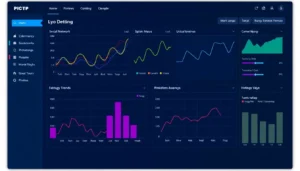Mastering Project Topics: Strategic Approaches to Selecting and Securing Your Research Material

Mastering Project Topics: Strategic Approaches to Selecting and Securing Your Research Material
Choosing the right project topics is a foundational step towards ensuring academic success and producing high-quality research work. Whether you are a final-year student aiming to meet graduation requirements or a researcher venturing into new academic territory, selecting a compelling, relevant, and data-rich topic is crucial. This comprehensive guide will walk you through effective strategies for pinpointing, securing, and leveraging the best project topics and materials to boost your research outcomes.
Understanding the Significance of Project Topics in Academic Success
Role of Project Topics in Final Year Projects
Project topics serve as the gateway to your entire research journey. They define the scope, direction, and relevance of your study, influencing not only the depth and quality of your research but also your academic reputation. In final year projects, a well-chosen topic demonstrates your understanding of your discipline and readiness for professional engagement. A strong topic aligns with current industry trends, fills existing research gaps, and resonates with your personal interests, making the process more engaging and fulfilling.
How Well-Chosen Topics Impact Research Quality
Ultimately, the quality of your research hinges on the appropriateness of your topic. An optimal project topic ensures access to adequate data, facilitates meaningful analysis, and results in a paper that adds value to existing knowledge. Conversely, poorly selected topics often lead to data scarcity, superficial analyses, and compromised results, which could jeopardize your academic standing. Therefore, investing time in selecting a robust, feasible topic is non-negotiable for impactful research.
Aligning Topics with Career Goals and Interests
Beyond academic requirements, your project topic should mirror your career aspirations and personal passions. Engaging with subjects that excite you fuels sustained motivation and allows you to develop specialized expertise, which can serve as a springboard for your professional journey. For example, a student interested in digital marketing might focus on emerging trends in social media analytics, positioning themselves as an expert in that niche.
Effective Strategies for Choosing the Best Project Topics
Conducting Preliminary Research and Feasibility Analysis
Start with broad exploration within your academic discipline to identify current gaps or emerging issues. Utilize academic journals, online repositories, and industry reports to gauge the availability of data, existing literature, and research opportunities. Feasibility analysis involves assessing the resources, time constraints, and access to relevant data or laboratories. Prioritize topics that are manageable within your scope but still offer substantial contribution potential.
Identifying Relevant and Data-Rich Subjects
A data-rich topic ensures a comprehensive analysis and credible findings. Consider subjects with accessible datasets, case studies, or fieldwork opportunities. For instance, studies on consumer behavior can leverage surveys and sales data, while engineering projects might utilize lab experiments or simulations. Targeting topics with abundant data resources minimizes barriers to progress and enhances research validity.
Consulting Advisors and Industry Trends for Inspiration
Seek mentorship from academic advisors, industry professionals, and alumni to obtain insights into trending topics and practical challenges. Attending seminars, webinars, and industry conferences can reveal current issues demanding research attention. These interactions help in refining your ideas and aligning your project with real-world needs, increasing the likelihood of relevance and usability.
Accessing Complete Project Materials and Resources
Where to Find Reliable Research Materials Online
Trusted platforms like ResearchWap offer comprehensive project topics and complete research materials across disciplines. These resources include well-structured chapters, questionnaires, references, and sample analyses. Always prioritize sources with professional authorship and peer-reviewed content to ensure credibility. Additionally, academic libraries, online journal databases, and institutional repositories are invaluable in sourcing high-quality materials.
Using Free and Paid Academic Resources Effectively
While free resources provide foundational ideas and frameworks, paid repositories often contain more detailed, professionally curated materials. Combining both allows you to access a broad range of topics and deepen your research. Be diligent in verifying the originality and up-to-date status of materials, and ensure proper citations to avoid plagiarism.
Ensuring Originality and Quality in Your Work
Always customize template materials to suit your specific project context. Incorporate fresh data, recent theories, and your unique insights. Plagiarism detection tools like Turnitin can help verify originality. Remember, high-quality work reflects both rich sources and your analytical contribution. Proper referencing of all sources underscores academic integrity and professionalism.
Overcoming Challenges in Project Topic Selection
Handling Limited Topic Ideas or Repetitive Subjects
Facing a scarcity of unique topics can be frustrating. To overcome this, modify existing ideas by adding new perspectives, such as introducing new variables, different populations, or innovative methodologies. For example, adapt a general study on financial literacy to focus specifically on rural youth in a particular region.
Adapting Existing Topics to New Contexts
Reimagining well-established topics in contemporary or niche contexts can make your research stand out. This may involve integrating recent technological advancements, policy changes, or cultural shifts. For instance, studying the impact of mobile money in urban versus rural settings can yield fresh insights.
Expert Tips for Fast Material Delivery and Customization
Utilize reputable research support services like ResearchWap for swift access to complete project materials. Many offer customization options, allowing you to tailor content to your specific needs—whether adjusting case studies, data sets, or theoretical frameworks. Engage professional writers or consultants to fast-track your project without compromising quality.
Optimizing Your Research Journey with Professional Support
Hiring Professional Writers and Consultants
Engaging seasoned academic writers and research consultants can significantly reduce your workload and improve the quality of your project. They bring expertise in data analysis, report structuring, and industry-specific knowledge. When choosing a support service, verify their credibility, specialization, and client reviews to ensure reliability.
Collaborating with Research Support Services
Leverage comprehensive research services that provide not just topics but entire research packages—covering proposal development, methodology design, data analysis, and final editing. Such collaborations help maintain academic standards, meet tight deadlines, and enhance the originality of your work.
Maximizing Efficiency and Meeting Deadlines
Plan your research schedule meticulously, allocate tasks, and communicate regularly with support teams. Use project management tools to track progress. Early engagement with support services allows for iterative feedback, ensuring your project aligns with academic and industry expectations and is delivered promptly.







